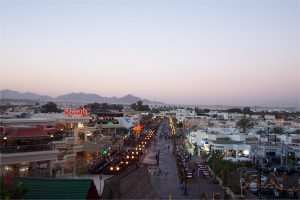 It was 2011 when Hussein Salem fled Egypt to Spain. He had been accused by the new, transitional authorities of having profited through his connections with the regime of Hosni Mubarak to the tune of several billion dollars in corrupt assets.
It was 2011 when Hussein Salem fled Egypt to Spain. He had been accused by the new, transitional authorities of having profited through his connections with the regime of Hosni Mubarak to the tune of several billion dollars in corrupt assets.
Hussein Salem was a business tycoon, known as the ‘Father of Sharm El Sheikh’ for the part he played in building some of the first and biggest hotels in the resort, but has since been sentenced in abstentia in Egypt for corrupt deals in the gas and electricity sectors.
Fast forward to 2016 and Salem started preparing for a return to Cairo. Thanks to a deal made with the Egyptian government under President Sisi, he gets to exchange immunity from prosecution for voluntarily returning 75% of his assets to the Egyptian authorities. This amounts to somewhere in the region of EGP 16 billion (USD 850 million).
Sound like a good deal? It’s not.
Not only does Salem get to keep out of jail and keep the remaining 25% of his wealth, but there is also a serious risk that, in the intervening four years, assets that weren’t frozen after the Egyptian revolution have been offloaded to friends and family members to avoid them being associated to him. These are over and above questions over who made the list of his assets. It’s also a frankly terrible message to send others: effectively that even if corruption has a price, there are still big profits to be made from looting the state.
And it’s not only the Egyptian government involved in this. Those assets outside of Egypt are sitting, at the very least, in Spain, Switzerland and Hong Kong, which are all places the Egyptian government has asked to unfreeze the assets of Hussein Salem. Arguing that there will be no Egyptian prosecution of Salem, that’s exactly what they are doing, effectively giving up their responsibility to investigate if funds obtained by corruption entered their banking systems and letting the corrupt know that they have governments willing to do only the absolute minimum to fight the flow of corrupt wealth into their economies.
Deals like that for Salem are not only bad for the people of Egypt, they are bad for us all who want a world free of corruption. The EU has to decide soon whether or not it will keep a freeze in place on assets of other officials from the former Egyptian regime in place. If we don’t want to see a world where there are even more rewards for being corrupt, they should keep the assets frozen and not only that – they should actively start their own investigations into how these funds entered EU member states.
Let’s make 2017 a year of change for the right reasons.
